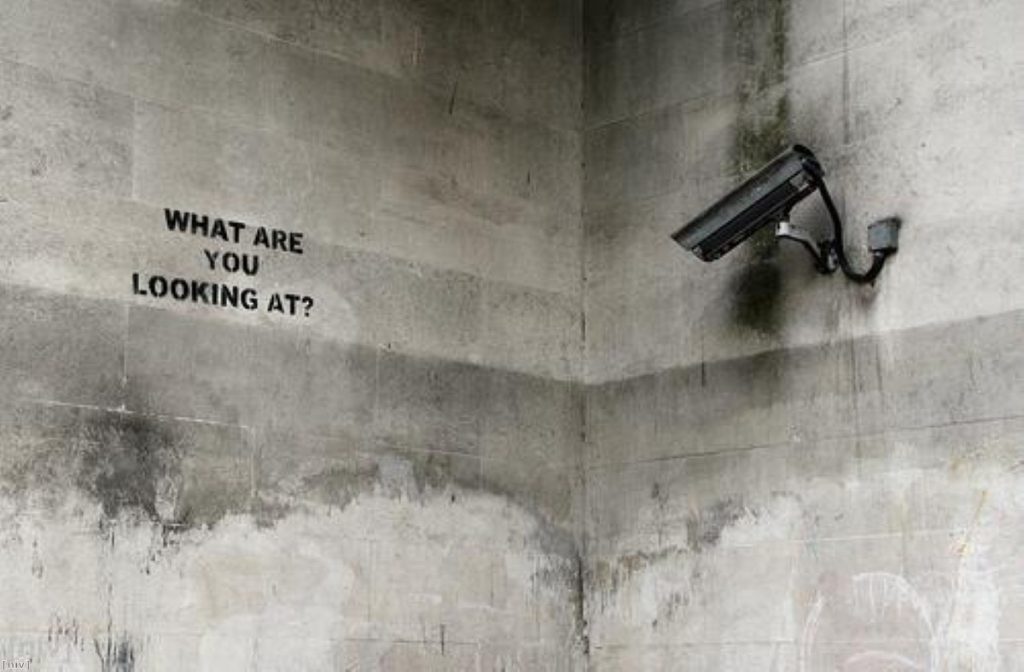Does Cameron have any response to terror which doesn’t involve the snoopers’ charter?
No matter what, David Cameron is intent on getting the snoopers' charter onto the statute book. The prime minister seemingly has only one stock response to any terror attack and that is to demand the government be given access to our online communications.
Usually, it is unhelpful. After the Charlie Hebdo attack, it is despairingly stupid and counter-productive.
The same thing happened following the Woolwich murder. The security industry sparked into life with its usual message. Lord West, former first sea lord and security minister, demanded the return of the snoopers charter. Former reviewer of terror laws Lord Carlile joined him. John Reid, former home secretary and G4S 'group consultant', followed them into the TV studios. The same sad game was played over again.
As security sources made clear, it would not actually have made any difference to the Woolwich killing. That didn't matter. It was the only response the authorities seemed interested in. It's quite clear that this is the standing demand of the intelligence agencies and that any attack, no matter the details, will always be greeted by this response.


Eventually they gave up on a bill altogether in the face of Liberal Democrat opposition. Instead, they worked to pass the core of the snoopers' charter without a vote. The data retention and investigatory powers bill (Drip), set up the spine of the original legislation. Ministers claimed it simply maintained existing powers but the reality was quite different.
It extended Ripa – the Regulation of Investigatory Powers Act (Britain's Patriot Act) – so the UK government could impose penalties on companies overseas which refused to comply with interception warrants. Another clause then provided a new definition of "telecommunications service", which included companies offering internet-based services. That dragged in services like Gmail and Facebook, which the snoopers charter was originally intended to target, into the law. When it was made clear to the home secretary that the bill clearly went well beyond what was currently law, she simply refused to address the question. Unfortunately, this seemed enough to convince the Liberal Democrats.
The knee-jerk response to all terror attacks with a demand for the return of the snoopers' charter is pointless. British police already receive more data from Skype than any other country in the world. Social media firms already cooperate with authorities. This ad hoc situation is insufficient for the securocrats, though. They want legally established full spectrum monitoring, with their own technology at the level of the ISPs. They don't want to wait for firms to respond to warrants.
Some suspect this desire stems from the profit motive. That level of data about consumer behaviour is worth extraordinary amounts of money. But in reality nation states always want full control, while having to rely on cooperation as little as possible and statute as much as possible.
Perhaps the most worrying aspect of these constant calls for the snoopers' charter is how little imagination ministers seem to have. Cameron may have positioned himself at the front of a mass march in Paris yesterday, but his understanding of the issues around terrorism are clearly lacking if the snoopers charter is the only response he is capable of.
Purely on a strategic level, one might wish for a more thorough response than the simple demand the government be given access to all our communications. In an ideal world, one might also hope for a prime minister with something broader to say about challenges to free speech, the strength of Islamic extremism and European values.
Instead, he simply branded the attackers part of a "fanatical death cult" and demanded that we respond to an attack on free speech by giving the government the power to read everything we write. He clearly does not understand what free speech is or how one might protect it.












